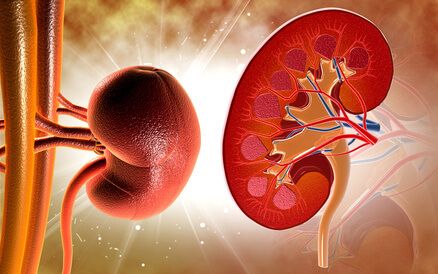Chronic coronary syndrome (CCS) has been considered another comorbidity in previous studies, and there has been no significant reduction in cardiovascular mortality or myocardial infarction (MI) rates with revascularization through percutaneous coronary intervention (PCI) or myocardial revascularization surgery (MRS) compared with optimal medical treatment (OMT).

One possible reason for the lack of benefit has been the lack of complete revascularization (CR) in these patients. The ISCHEMIA study, a prominent study in the management of chronic coronary syndromes, found no significant differences in outcomes at 3.2 years compared with OMT.
Researchers conducted a prespecified analysis within the ISCHEMIA study to evaluate the extent of revascularization and its impact on cardiovascular events. Study objectives included the assessment of complete anatomical revascularization (CAR: all major vessels with >50% stenosis, as determined by the core laboratory) and functional CR (FCR: vessels >2 mm with >30% stenosis and evidence of ischemia or >50% stenosis along with noninvasive functional testing, or >70% stenosis without evidence of ischemia), compared with incomplete revascularization (IR) in CCS patients. Additionally, the impact of CR was assessed in all patients in the invasive management (INV) group compared with those in the conservative management (CON) group. The prespecified outcome was a composite of death or MI at 4 years of follow-up.
A total of 1801 patients in the INV group were analyzed, with 72.5% undergoing PCI, 26.3% undergoing MRS, and 1.3% receiving hybrid revascularization. CAR was achieved in 43.4% of cases, while FCR was achieved in 58.4%. Independent predictors of CR (both anatomical and functional) were the presence of diabetes, low body mass index, a smaller extent of coronary disease (lower SYNTAX score), and the absence of chronic total occlusions (CTO). Procedure type was also an independent predictor for achieving both CAR and FCR after adjusted analysis.
The rates for the composite outcome were lower when CAR was achieved, compared with incomplete revascularization (adjusted hazard ratio [aHR]: 0.76; 95% confidence interval [CI]: 0.52–1.13), while the impact of FCR was slightly lower (0.85; 95% CI: 0.60–1.22). A comparison between the INV group patients and the CON group patients showed that CAR in all INV group patients reduced adjusted death and MI events at 4 years by -3.5% (95% CI: -7.2% to 0.0%), while FCR also showed similar but smaller magnitude results at -2.7% (95% CI: -5.9% to 0.3%).
CONCLUSIONS
The complete revascularization substudy of the ISCHEMIA study revealed that a smaller extent of coronary disease and the presence of diabetes are predictors of CR, especially when MRS is chosen as the procedure of choice (according to adjusted analysis). Both CAR and FCR were associated with lower rates of cardiovascular death and MI. The most impactful results were seen with CAR, which aligns with previous analyses of ischemia severity in the ISCHEMIA study. These findings suggest that the extent of coronary disease (such as the presence of multivessel disease or CTO) may be a more relevant predictor of events than the severity of ischemia itself.

Dr. Omar Tupayachi.
Member of the Editorial Board of SOLACI.org.
Original Title: Impact of Complete Revascularization in the ISCHEMIA Trial.
Reference: Stone, Gregg W et al. “Impact of Complete Revascularization in the ISCHEMIA Trial.” Journal of the American College of Cardiology vol. 82,12 (2023): 1175-1188. doi:10.1016/j.jacc.2023.06.015.
Subscribe to our weekly newsletter
Get the latest scientific articles on interventional cardiology





